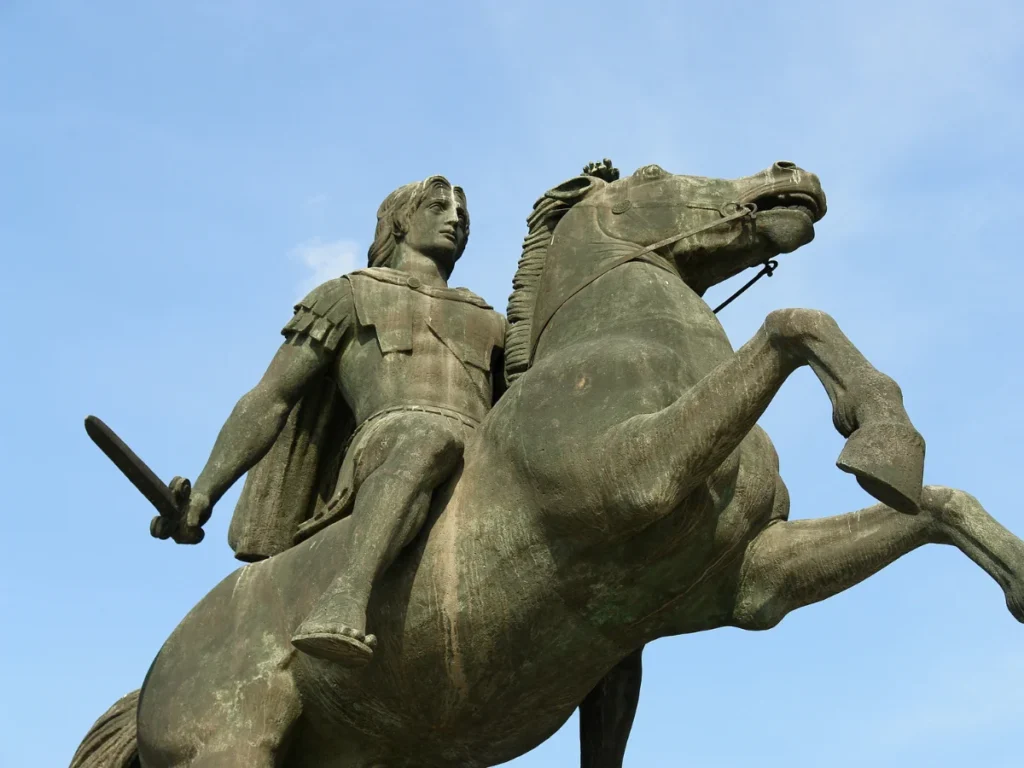Battle of Gaugamela/Arbela
The Battle of Gaugamela/Arbela, in 331 BCE, marked a pivotal moment in history. Alexander the Great, despite facing an immense Persian army led by King Darius III, triumphed through tactical brilliance. Employing a crescent formation and a calculated feigned retreat, Alexander drew the Persians into disarray. His decisive cavalry charge secured victory, leading to the fall of the Achaemenid Empire and establishing Alexander’s legacy as a military genius and conqueror.

The Battle of Gaugamela/Arbela (331 BCE)
A Pivotal Encounter
The Battle of Gaugamela, also known as the Battle of Arbela, unfolded in 331 BCE and stands as one of the most decisive clashes in ancient history. It was a culmination of Alexander the Great’s relentless pursuit of the Persian Empire, where he faced King Darius III once again. This battle would determine the fate of empires.
The Immense Persian Army
Darius III’s Persian army was vast, consisting of infantry, cavalry, and war elephants. It was a force that seemed insurmountable. Alexander, leading a significantly smaller army, faced an imposing challenge.
Alexander’s Tactical Brilliance
Alexander’s strategy at Gaugamela showcased his military genius. He exploited the battlefield’s geography to his advantage, preventing the Persians from employing their superior numbers effectively. He positioned his troops in a crescent formation, extending his flanks and thinning his center to lure the Persians into a frontal assault.
The False Retreat
One of the pivotal moments in the battle was Alexander’s tactical retreat, drawing the Persians into pursuing him. This maneuver created a gap in the Persian lines, which Alexander exploited when the pursuing Persian cavalry fell out of formation. He launched a decisive cavalry charge directly at Darius III.
Alexander’s Personal Leadership
As with previous battles, Alexander led from the front. His personal courage and charisma inspired his soldiers, who followed him into the heart of the battle. His presence was not just symbolic; it was strategic.
Decisive Victory
Despite the Persian army’s immense size, Alexander’s tactics and leadership carried the day. Darius III’s forces crumbled, and the Persian king was forced to flee, leaving his empire in the hands of Alexander.
Consequences and Legacy
The Battle of Gaugamela led to the downfall of the Achaemenid Empire and established Alexander as the master of Persia. It was a testament to his military brilliance and the unwavering loyalty of his troops. This victory marked the zenith of Alexander’s conquests, reshaping the ancient world and leaving a legacy of audacious leadership and tactical ingenuity.
Conclusion
The Battle of Gaugamela was a defining moment in history, illustrating Alexander’s ability to outmaneuver and outthink his opponents. His strategic brilliance, combined with his unwavering leadership on the battlefield, secured a decisive victory against overwhelming odds. This battle cemented his place among history’s greatest military commanders.
